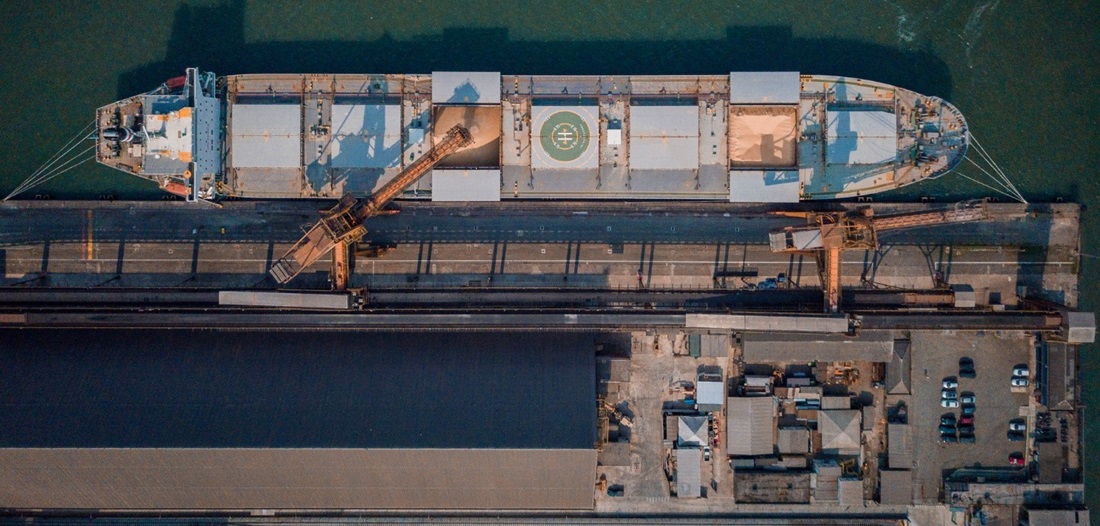
Extreme heat poses threat to Port of Santos logistics
Dec, 07, 2023 Posted by Gabriel MalheirosWeek 202345
Extreme heat poses a threat to port logistics, with deep impacts on certain cargoes. Heat results in heavier rainfall, causing problems affecting production chains and the Port of Santos alike.
“From the perspective of port logistics, the effects of abnormal heat are mainly noticed on the surfaces of walls and roofs, container panels, cabins of good carriers, and inside room-temperature warehouses,” explained port consultant and director of V2PA Engineering and Consulting, Marcos Vendramini.
Refrigeration systems are responsible for mitigating these effects. “Containers that store products requiring temperature heat are special and equipped with a refrigeration system. Thus, the effect on these types of cargo is solved by increasing refrigeration, with consequent costs (electricity or fuel for those powered by engines). In other words, the solution is essentially economic,” details the port consultant.
Concerns
On the other hand, heat-affecting goods stored at room temperature can cause products to degrade, albeit insignificantly. “On the flip side, rains can cause worse damage than the heat,” warns Vendramini.
The port consultant notes that most port drainage systems were conceived and implemented over 60 or 70 years ago, with diameters smaller than necessary today. They were designed for now outdated rain expectations.
Rainfall disrupts solid vegetable and mineral bulk operations, causes road flooding, and, consequently, difficulties and delays in drainage, interrupting or slowing down vehicle traffic, explains Vendramini.
Luciano Santos de Carvalho, president of the Union of Independent Road Haulers (Sindicam), is concerned about the rising temperatures. To prevent cargo from being stranded, he calls for authorities to inspect trucks coming to the region without booked parking reservations.
Regarding liquid bulk, the increased heat on the tank sheets and roofs may increase the evaporation rate. “Although nothing very significant and usually solved with existing devices on the tank roofs to control it,” Vendramini recollects.
The chart below shows the top refrigerated cargo exported from the Port of Santos in the year 2023. The data is from DataLiner.
Refrigerated Cargo | Port of Santos | Jan 2023 -Oct 2023 | TEU
Source: DataLiner (click here to request a demo)
Perspectives
Vinícius Pina, CEO of T-Grão Bulk Terminal, explains that extreme weather conditions impact the production chain and amplify the challenges of exporting vegetable-origin grains, such as soybeans and corn.
“When we talk about the port, the challenge is not refrigeration like other cargoes but maintaining grain conditions because dry scenarios can lead to quality loss. Dried grain does not produce oil as it should, losing commercial value and even making it unfeasible,” he says. “It also requires greater attention and investments in temperature control components of equipment, which, in continuous operation combined with the very hot external environment, can cause damage involving overheating, causing breakdowns, and in some cases, even spot fires,” he adds. T-Grão, for example, has vertical storage cells, preserving the quality of grains in both temperature controls and handling.
However, problems often begin in the production zone, with wildfires ruining crops and equipment. “Also, due to storage, sometimes not so suitable. It’s like having stacks of products outdoors. This causes the producer to lose a lot of moisture from the product, a relevant factor in the sack’s price. Consequently, they seek ways to compensate for this, often literally throwing water,” details Pina.
Among container terminals, BTP stated in a note that it did not observe any interference from extreme temperatures in the operational process. The company claimed that winds and tides can affect operations, but heat does not directly impact them.
Source: A Tribuna
Click here to read the original text: https://www.atribuna.com.br/noticias/portomar/calor-extremo-e-desafio-para-cargas-no-porto-de-santos
-
Meat
Sep, 08, 2023
0
Revenue from Brazilian beef exports see 29% drop in August
-
Shipping
Oct, 18, 2023
0
Raizen, Wartsila to research use of ethanol in maritime transportation
-
Nov, 30, 2021
0
Paranaguá Container Terminal reaches 1 million TEU handled in less than a year
-
Oil and Gas
Sep, 16, 2022
0
Brazil opens consultation on planned 2023 biodiesel imports


